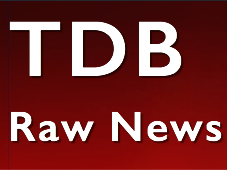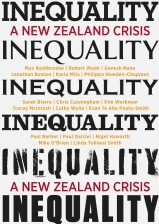Headline: NZ income gap at crisis level – author
By Harry Pearl
http://www.stuff.co.nz/national/9182609/NZ-income-gap-at-crisis-level-author
Income inequality is at crisis levels in New Zealand and could spiral out of control if it is not tackled soon, a visiting author says.
It is one of the messages in a recently published book, Inequality: A New Zealand Crisis, edited by Wellington journalist and author Max Rashbroke, who spoke at a panel discussion about the country’s widening income gap at Waikato University last night.
Speaking before the event, Rashbroke said the idea of “a fair go” in New Zealand no longer existed.
“I don’t think there is a fair go any more.
“You look at the different life opportunities of kids depending on whether they grow up in Parnell or Porirua. Those kids have very different starts in life and that leads to different kinds of jobs, which leads to very different salaries and earnings.”
Despite historically being one of the developed world’s most equal societies, that changed between the mid-1980s and mid-1990s, when income inequality accelerated, Rashbroke said.
In 2010, New Zealand was ranked 20th among 34 OECD countries in terms of income inequality.
“The reason we call it a crisis is because we’re at a point where we really need to tackle it,” he said.
“If we don’t, the danger is it will get entrenched and that can create some severe problems.”
Drawing on comprehensive research and pulling together contributions from across professional fields, the book investigates the nature, causes and consequences of income inequality in New Zealand.
It also provides some startling statistics.
According to figures from the Ministry of Social Development for 2011, and quoted by Rashbroke, the average income of a single-person household in the middle band of income distribution was $30,800 in 2011, a figure that had risen less than 20 per cent from 1984, when it was $25,000.
The book also outlines that anyone earning more than $72,000 is considered to be in the top 10 per cent of income earners in the country, while the top 1 per cent of the adult population own 16 per cent of the country’s total wealth.
Meanwhile, half the population, including beneficiaries and pensioners, earn less than $24,000.
Rashbroke said one of the biggest problems with entrenched inequality was the way it “makes a lie” of the idea that there were equal opportunities.
“The evidence shows that in very unequal countries about half of your income, as an adult, can be predicted from what your parents earned.
“When you’ve got really entrenched inequality, half of your success is based on how successful your parents are.
“And I don’t think that is something anybody wants.”
Rashbroke said the first step to tackling income inequality was acknowledging and discussing the issue.
“Our act with this book is to put this information in front of people and I think the first step is for people to acknowledge the issue and talk about it.”
—






